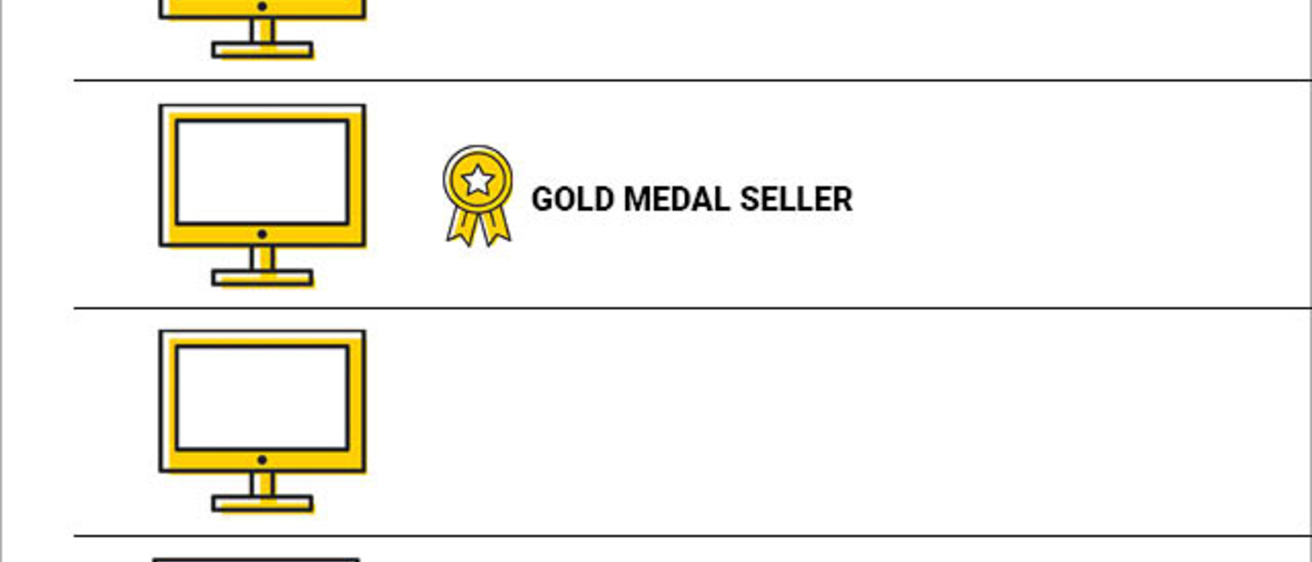Online merchants who have earned a literal seal of approval for their website sell more, while less reliable sellers who lack such an endorsement sell less according to a new University of Iowa Tippie College of Business study.
However, researcher Weiguo Fan, professor of business analytics in the Tippie College of Business, says that earning the badge could be a double-edged sword. His study found that if the seller loses the badge, it could lead to a reduction in sales even greater than the gains from earning it.
THE STUDY
The study uses data from Taobao.com, China’s largest e-commerce platform, gathered during the last six months of 2015. Taobao provides a Gold Medal Seller (GMS) badge to sellers who maintain high reputation scores from customers and meet several measures of customer satisfaction, such as high volume, low rates of return, high number of repeat transactions, and few disputes.
Taobao.com puts a graphic of a gold medal with red and blue ribbons on the seller’s homepage for 15 days to reflect their GMS status. Their score is reviewed every 15 days after that and they can keep the graphic as long as they continue to meet the requirements.
The researchers used sales data from the top ten sellers of Wi-Fi routers, computer monitors and refrigerators on Taobao.com during the study period, tracking the number of sales from each as they added the badge, lost it, or maintained it.
FINDINGS
--Sporting a new badge leads to a 4.43% increase in sales in the subsequent 15 days, while keeping a badge leads to a 9.28% increase in later time periods. Fan says that means keeping the badge increases business more than earning it in the first place.
--Moreover, he says consecutively keeping a reputation badge or earning it multiple times is a stronger signal for seller quality and has a larger positive impact on sales.
--Losing a badge leads to a 7.97% decrease in sales, a negative impact that’s four times greater than the positive impact of earning a badge. Fan says that effect is most pronounced if the seller loses the badge 15 days after earning it the first time, which the consumer interprets as a more negative signal than not earning the badge at all. The study found that the longer a seller maintains a badge, the less damage is caused to their sales when they occasionally lose it.
BOTTOM LINE
Reputation management is important for online merchants because consumers take seriously the trustworthiness of someone they may do business with but who they know nothing about. A reputation badge on a website that endorses a seller’s trustworthiness has a positive impact on sales, while losing a badge has a negative impact on sales.
The study, “Can Gold Medal Online Sellers Earn Gold? The Impact of Reputation Badges on Sales,” will be published in a forthcoming issue of the Journal of Management Information Systems.
Media contact: Tom Snee, tom-snee@uiowa.edu, 319-541-8434
